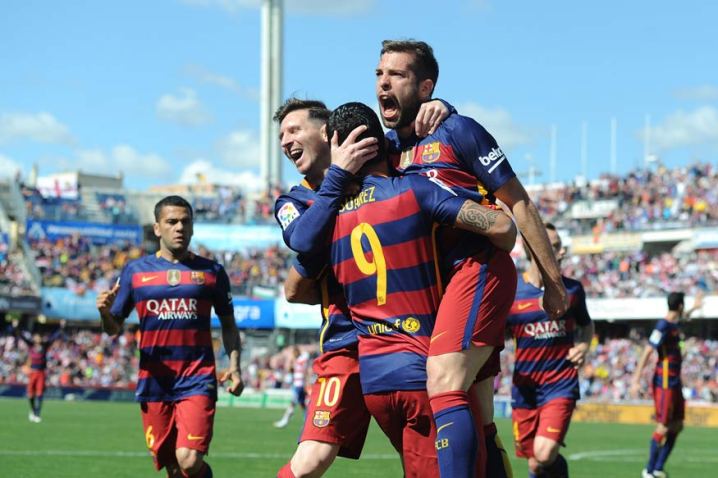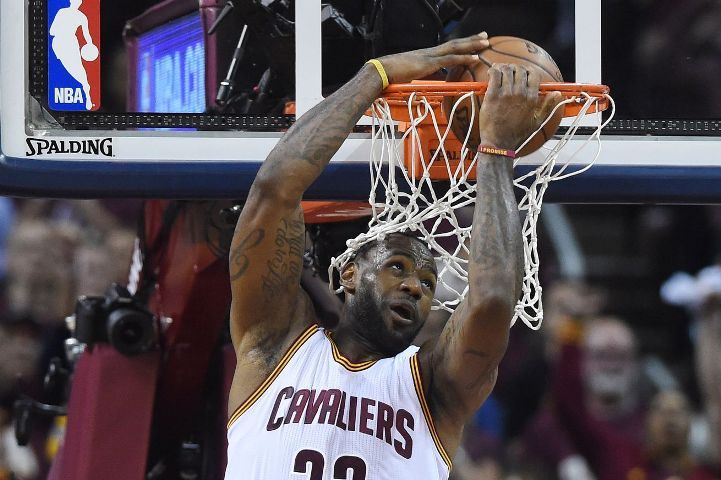
Sports sponsorship has almost doubled since 2010 to $60 billion a year and scandals that have hit football and athletics will not put off corporate titans, according to the newest entrant to the sportsintelligence business.
Data giant Nielsen, best known for its TV ratings, on Tuesday completed the takeover of Repucom, a leading sports data and intelligence firm in a sign of the changes.
Howard Appelbaum, Nielsen Entertainment president, said global spending on sports sponsorship has risen from $35 billion in 2010 to $60 billion.
He predicted the market would pursue single digit growth for years to come.
Nielsen has had interests in sport for about a decade but decided “to get serious” in the past four years, said Appelbaum.
“We know that it is growing, we know that it has massive viewership with television. We know that brands this year are expected to spend $60 billion promoting and activating around sports,” he told AFP in an interview.
US auto giant General Motors spends an estimated $200 million a year on sponsorship alone and new Chinese entrants such as property conglomerate Wanda have drawn new interest in the sportsbusiness.
Appelbaum said audiences for Major League Baseball, the National Football League and National Basketball Association in the United States “are growing every year”.
– Cricket, cricket, cricket –
Repucom founder Paul Smith added: “There is uniform consistent growth across the globe that speaks to the opportunities we have in front of us.”
“Football is important and in the United States the NFL is a dominant brand.
“But you also have an emerging growth sector that is the secondary sports like e sports.
“You have a lot of interest in other markets like India where it is cricket, cricket cricket, but now there is the emergence of basketball, football and others as well.”
While world football body is FIFA battling corruption scandals and athletics is engulfed by widespread doping claims ahead of the Rio Olympics, there has been no noticeable impact on sport in general.
“It is inherently a part of sport,” said Smith.
“There are scandals. Sport is sport, it is an unscripted form of entertainment. You can never predict what can happen.
“Brands view these things as potentially negative but they also inherently part of the equation.”
Smith said corporate giants and television rights holders increasingly demand “a much more responsible and collaborative approach to dealing with these issues.
“It is definitely a factor at play but I think those risks are somewhat low when a brand makes a decision on sponsorship.”
There is growing competition in the analysis of sportsfans and what they watch and consume. Clubs like Manchester United and new NBA champions Cleveland Cavaliers run their own credit cards and television channels and sell their own perfumes as part of their formidable business machines.
“It is a very very very big business and a lot of people want to be a part of it,” said Appelbaum.
Companies are in turn making “a big bet” when they enter sponsorship deals.
“A $50 million a year, 20 year stadium rights deal in the United States is one billion dollars!”
China is considered a key growth market for Nielsen and its rivals.
“We know that China is at the forefront of an explosion in interest in sports,” said the Nielsen chief.
The NBA has made a landmark deal with Chinese internet giant Tencent to show live basketball games and produce content aiming for hundreds of millions of users.
“It is a sign of the commitment there,” said Appelbaum, who predicted growth in Latin America.
Smith said North Asia in general was becoming a keysports sponsorship market with the Tokyo 2020 Olympics looming.
Chinese and Japanese brands are expanding their sponsorship presence in global sport.
“Asia generally is going to become much more outward looking in terms of investment sponsorship.” – Agence France-Presse



































